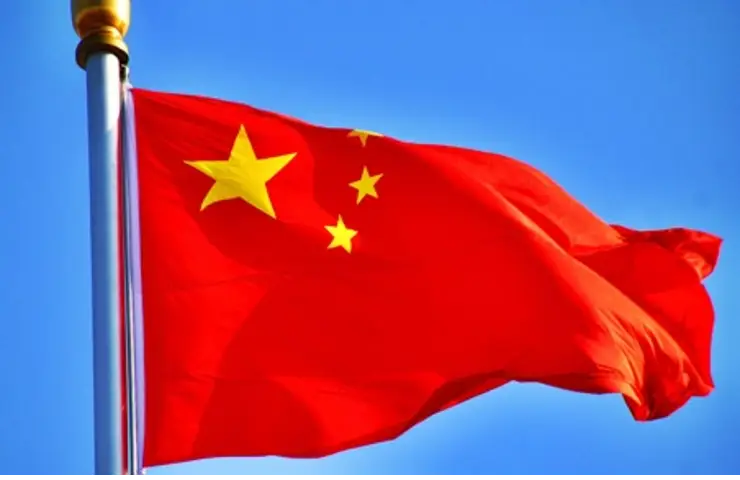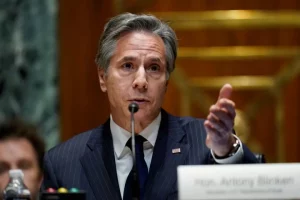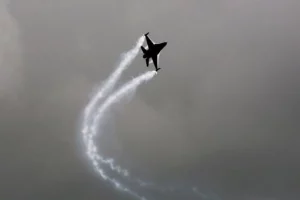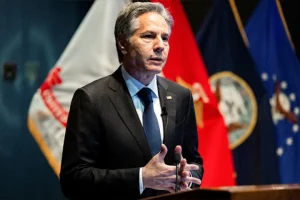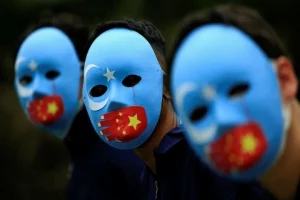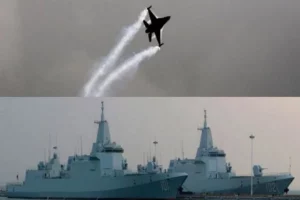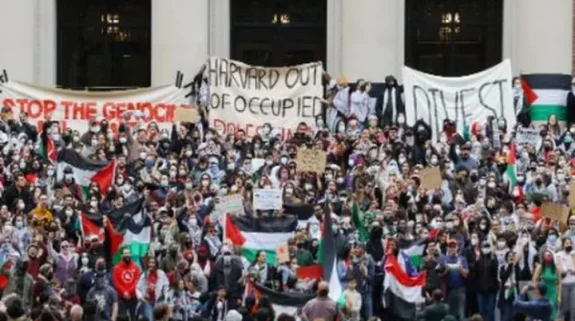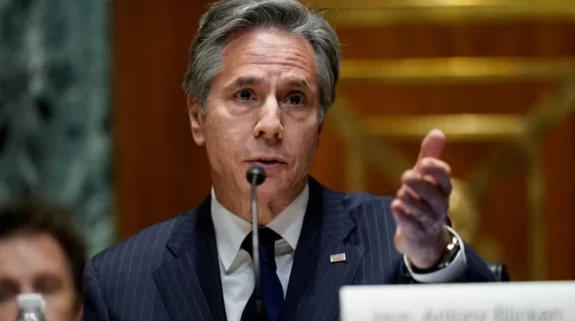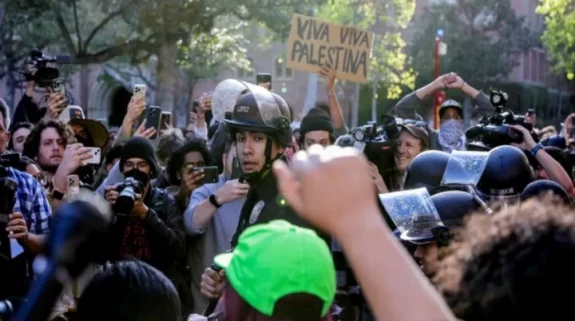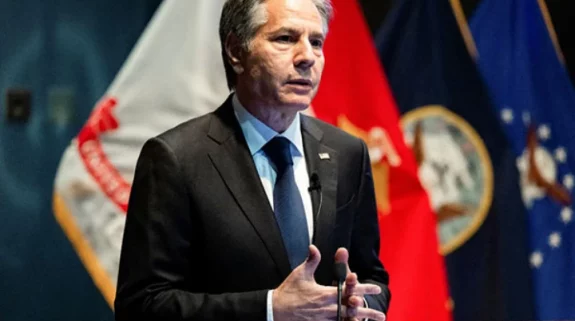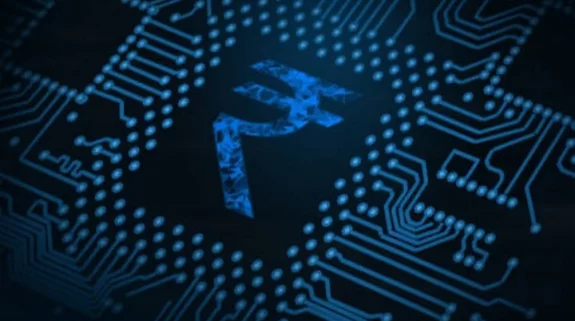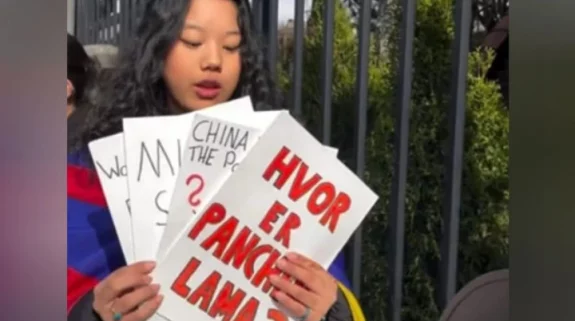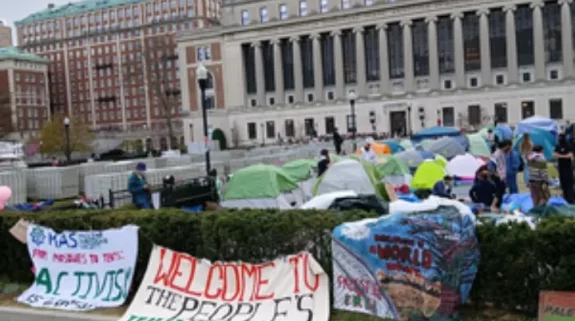In the latest episode of top Beijing official facing purges, Chinese Defense Minister Li Shangfu — who has not been seen in weeks — is being investigated for corruption and likely will be removed, The Washington Post reported citing two US officials.
The expected purge of Li, who has been noticeably absent from public view for the past two weeks, in the wake of other dismissals will heighten a sense of uncertainty over how China’s day-to-day foreign policy is being managed. It will also further call into question Xi’s leadership as he consolidates power, the Post reported citing analysts. They note that the narrowing of his inner circle to yes-men has deprived him of opinions and advice that could avert damaging decisions.
One Chinese official said that Li’s dismissal was imminent, but said it was for “health issues,” not corruption. Two people involved in the Chinese defense industry, however, said there is broad consensus that Li’s absence is related to corruption charges relating to his previous position as head of military procurement, The Washington Post reported.
Li (65) who was appointed defense minister in March this year, is one of five state councillors — high-level officials — tapped by Xi to form China’s leadership cabinet this year. Li was last seen on August 29, when he gave a keynote address at the China-Africa Peace and Security Forum in Beijing.
Last month, he travelled to Belarus and Russia, meeting in Moscow with his counterpart, Sergey Shoigu. He is due to take part in a major international defense and security conference in Beijing next month, the Xiangshan Forum.
Meanwhile, Li’s apparent cashiering would come months after the purge of China’s foreign minister, Qin Gang, and the leadership of the People’s Liberation Army Rocket Force, its premier military unit in charge of the country’s growing arsenal of nuclear weapons and conventional missiles, The Washington Post reported.
“These are some of the most important outward-facing positions in China,” The Post quoted one senior US official.
Li “is under serious investigation and in all likelihood is being removed,” the official said, noting that the Rocket Force leadership purge also involved allegations of corruption. Notably, if Li is sacked, he would be the second state councillor to be removed from a ministerial position within three months.
“It could be even worse than that,” the official added, alluding to the potential for further purges.
Rahm Emanuel, the US ambassador to Japan, on Friday suggested that Li had been placed under house arrest. “Might be getting crowded in there,” he wrote on X (formerly Twitter).
“As Shakespeare wrote in Hamlet, ‘Something is rotten in the state of Denmark’,” Emanuel wrote.
The Chinese Embassy in Washington declined to comment on Li’s absence. Asked about Li on Friday, Chinese foreign ministry spokesperson Mao Ning said she “didn’t know about the situation mentioned.”
Beijing has not publicly explained Li’s absence, and Chinese military websites still list him as ‘Minister of Defense’. Traditionally, when Chinese officials are ousted for corruption or other disciplinary crimes, Beijing refrains from citing a reason, and confirmation can take months or even years, as per The Washington Post.
When Qin abruptly disappeared from sight in June, Beijing’s foreign ministry steadfastly refused to comment, instead scrubbing his existence from its Chinese-language website. Similarly, when Xi this summer purged the top two leaders of the PLA Rocket Force, the only information released by Beijing was an announcement of their replacements.
Since China’s 20th Party Congress last October, Xi has consolidated power, elevating a cadre of high-level officials based on their loyalty and closeness to him.
The removal of Li on the heels of other officials would “take a huge toll on Xi Jinping’s reputation and credibility,” said Yun Sun, director of the China Program at the Stimson Center.
“It would basically suggest that Xi Jinping’s domestic political position is in question,” The Post quoted him as saying.
Meanwhile, the “housecleaning” comes as China’s economy is struggling to right itself after a disastrous mass lockdown policy during the Covid-19 pandemic, a real estate market crash and a mounting debt crisis. The tumult of Xi’s domestic problems was likely a factor in his skipping the G-20 leaders’ summit in New Delhi last week, The Washington Post reported citing analysts.
With the dismissals of top diplomatic and military officials, “it seems like there’s a lot of churn and instability in who’s representing and speaking for China on the world stage,” said Sheena Chestnut Greitens, director of the Asia Policy Program at the University of Texas, Austin.
“As China’s whole system has become more and more opaque and as powers become personalized under Xi Jinping, that makes it harder for outside interlocutors to know where China’s foreign policy is going to go,” The Washington Post quoted Greitens as saying.
Dennis Wilder, a former senior China analyst at the CIA, who is now a senior fellow at Georgetown’s U.S.-China initiative, has said that Xi has created his own dilemma “because he’s taken so much power for himself.”
Several years ago, Xi abolished term limits allowing him to serve an unprecedented third term.
“When you close down a system to one-man rule like this, you close off discussion and debate within the system other opinions aren’t brought into play that can lead to better decision-making,” the Post quoted Wilder as saying.
Li’s ascension to defense minister followed several high-profile roles at the forefront of China’s military modernization efforts, including serving in 2016 as deputy commander of the PLA Strategic Support Force, a unit that oversees advanced warfare technology including space and cyber operations.
The following year, he was named as the top military procurement official, heading up the PLA Equipment Development Department, a powerful unit responsible for buying weapons.
In recent months, the procurement agency announced it had launched an investigation into alleged violations during a period that coincided with Li’s tenure as director.
In July, a notice released by the department called for tips into alleged violations in the procurement process dating to October 2017. The notice listed eight violations, including “actively leaking secrets,” “unfair handling of matters” and “lack of supervision.” It solicited tips regarding individuals who had manipulated the bidding process for personal gain, according to The Washington Post.
China’s national strategy to rapidly build a military that can compete with the US has seen billions of dollars flow to public and private contractors, a process which analysts say is easily corrupted.
“The temptations that come with that for senior officers in charge of these programs are great,” Wilder said.
The alleged corruption calls into question the professionalism and readiness of the PLA, he said.
“We tend to judge the PLA by the equipment they’ve been buying. But this leads to questions about the quality and reliability of the officer corps. Are they working in the national defense or lining their own pockets?” The Post quoted Wilder as saying.
Notably, corruption has long plagued China’s military, according to The Washington Post.
In 2012, when Xi took power, he removed the two vice-chairmen of the Central Military Commission who were later charged with corruption.
A few years later, the former chief of the joint staff of the PLA, Fang Fenghui, was placed under investigation for corruption, and in 2018, Xi fired the Chinese head of Interpol after he reportedly admitted to taking more than USD 2 million in bribes. In 2019, Fang was sentenced to life in prison on corruption charges, The Washington Post reported.
In 2018, Li and the Equipment Development Department were sanctioned by the US for violating a law barring significant transactions with persons working on behalf of Russian defense or intelligence agencies.
These transactions involved Russia’s transfer to China of Su-35 combat aircraft and S-400 surface-to-air missile system-related equipment. The sanctions on Li have caused friction between Beijing and Washington as U.S. officials are seeking to restart military dialogues.
Beijing in May declined a US request for Li to meet with Defense Secretary Lloyd Austin on the sidelines of the Shangri-La Dialogue in Singapore, citing the sanctions. The State Department in May said it was not considering lifting sanctions on Li. There have been subsequent discussions about revisiting the issue, but there seems to be no appetite to do so, and in any case, Li’s removal would moot the issue, The Washington Post reported citing officials.
“The state of things is changing constantly day-to-day now,” said an adviser to the Chinese government in Beijing. The person said that there is fresh scrutiny of the country’s security apparatus, including the military, intelligence agencies and internal security forces.
US officials said that Xi’s decade-long campaign to root out corruption is challenged by systemic issues.
“Some of the PLA’s enduring problems may be too big for Xi to solve, and they have a real impact on the PLA’s ability to achieve what he wants them to,” said a second US official.
“We know that corruption in the PLA runs deep enough for this to be a factor. And we know it’s had a profound effect on what they’re able to do, and how they do it,” The Post quoted him as saying.
Meanwhile, Chinese President, this week, sought to project an “image of control”. During an inspection of a PLA unit in northeast China, Xi, dressed in a pale green military button-down, assembled officials to “strictly enforce education and management of the troops, and maintain a high degree of centralization, unity, security and stability,” CNN reported citing state news agency Xinhua.






